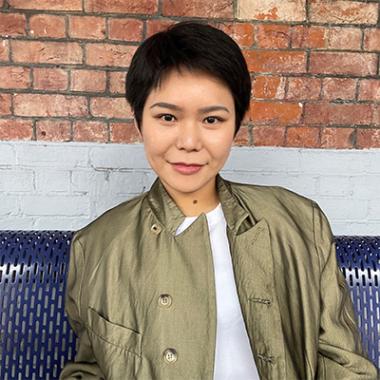
Menswear with Professional Experience MFA – 2023
The primary reasons for choosing my Master's programme were to challenge my design ethos and enhance my employability in the luxury sector after graduation. The Menswear programme at Westminster stood out in these aspects.
Why did you choose the University of Westminster?
The primary reasons for choosing my Master's programme were to challenge my design ethos and enhance my employability in the luxury sector after graduation. I meticulously reviewed module information, graduation shows, and alumni performance of various menswear master's programs globally. The course offered at Westminster stood out in these aspects. Another crucial factor was Westminster's Menswear Archive, housing a carefully curated collection of vintage garments. As access to well-preserved garments is rare for students, I was eager to explore the evolution of menswear. Fortunately, I was offered a spot during the application interview, and looking back, I am delighted with my decision. I showcased my collection at London Fashion Week and collaborated on design projects with GQ China, Audi, and K-Pop celebrities. After graduating, I’m now working at Dunhill and have seen my academic pursuits transition into practical industry experience.
How has your experience been studying in London?
Studying in London has been exceptional. The first thing I did was to get a membership at the Victoria and Albert Museum and to attend various interesting lectures they offer. I found it intriguing how disciplines seemingly unrelated to design provided deep insights into my field. Moreover, I enjoy listening to historical podcasts and cycling around London. It's delightful to stumble upon sites rich in history and fascinating trivia while cycling through the city.
What have you particularly enjoyed about your course?
The course is remarkably challenging, yet it nurtures creativity. A highlight was the project with Rotting Dean Bazaar in my first year, where the emphasis was on thinking fashion while simultaneously stepping outside conventional boundaries. The final presentation didn't necessitate garments, and it was daunting at first to set out without an end form in mind. In a way, it got me to investigate my taste and message in its purest form. For me, the fundamental unit of a garment was a yarn. Drawing inspiration from my favourite novels, 'Confessions of a Mask' and 'The Temple of the Golden Pavilion' by Yukio Mishima, I selected yarns reflecting the novels' motifs. I crafted a non-functional vase, interweaving different patterns to mirror the internal conflicts of the main protagonists, resonating with my personal struggles. Translating text into tactile experiences through yarn was a powerful exercise, and I later developed this project into a wearable garment.
How have you found academic support as part of your studies?
I dedicated long hours in the studio, and the lecturers consistently provided invaluable support throughout my projects. Their creative guidance and occasional introduction of new experimental ideas were instrumental. They also encouraged me to think about sustainability in fashion, which is why I have a lot of deadstock fabrics as part of my graduate collection.
Are there any stand-out facilities associated with your course?
The first that springs to mind is the dedicated studio space equipped with personal working tables, mannequins, and shared sewing machines. The Print Studio allowed experimentation with various fabric manipulation techniques. Additionally, the 3D Workshop facilitated the creation of intricate garment details, while the Photography Studio proved invaluable for professional editorials in collaboration with students from diverse disciplines.
Tell us about any activities that you have undertaken outside of your course
Aside from my studies, I did photo editorial collaborations with the Photography BA students at Westminster, using the Photography Studio and London streets.
Furthermore, I merged my marketing background with design knowledge to freelance in omnichannel copywriting and Korean language localisation at Chanel Cosmetics, SSENSE, and Acne Studios. These experiences revealed the vital role language plays in brand coherence.
Also, after each module, I travelled to Paris on weekends to visit museums and luxury flagship stores to study how garments are constructed, finished, and delivered to customers. I was thrilled to see garments that tell stories. On my Eurostar ride back to London, I remember always thinking about what kind of stories I wanted to tell as a designer and about how to implement garment details that I’d seen and felt to build into my creative universe.
I had a jam-packed schedule, but the time spent outside my course was filled with inspiration, reflection on, and appreciation for fashion.
What would your advice be to someone considering studying at Westminster?
One principle I consistently remind myself of is: 'Establish your vision but remain open to questioning and refining it.'
What's the best aspect of being a University of Westminster student?
The Harrow campus houses multiple facilities that foster artistic explorations at an affordable price.
What was the most surprising or unexpected aspect of your Westminster experience?
I loved how everyone had a different aesthetic that is true to their personality. As we progressed through the modules, each of us refined our own vision to the point that we could tell which work belongs to whom, without even looking at who made them.